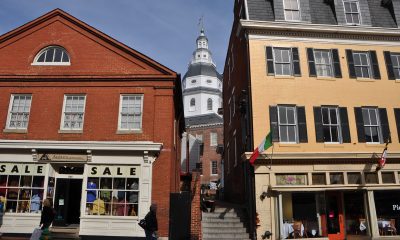Local
Md. state senator says casino firm paid for NGLTF gambling mailer
LGBT advocacy group says ballot measure on gambling will hurt marriage equality vote
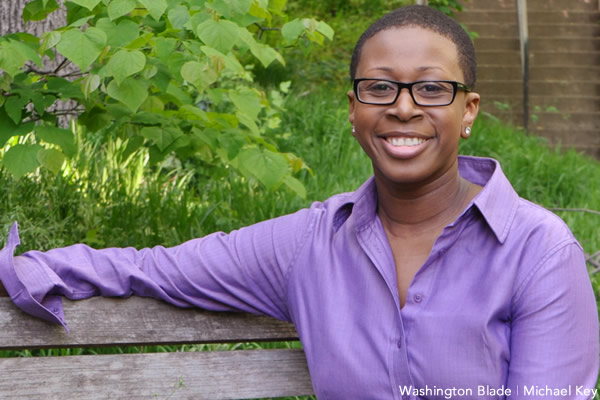
A state senator in Maryland told the Washington Post that the Penn National Gaming company paid more than $340,000 for a mailing that the National Gay & Lesbian Task Force sent to Maryland households in August opposing a bill to expand gambling in the state.
According to the Post, Sen. C. Anthony Muse (D-Prince George’s County), who voted against Maryland’s same-sex marriage law, said a Penn National vice president told him the casino company gave the money for the mailer to the DCI Group, a D.C. based consulting firm. The Post reported that Muse said the DCI Group then gave the money to the Task Force.
At that time, Monique Hall, a member of the NGLTF Action Fund board of directors, also served as a vice president for the DCI Group, a Republican-leaning consulting firm. Sources familiar with DCI Group told the Blade in August that DCI had been retained by one of the Maryland casinos to campaign against the gambling bill.
Hall, DCI Group, and Penn National have not responded to calls from the Blade seeking comment. NGLTF spokesperson Inga Sarda-Sorenson could not be immediately reached for comment.
The gambling bill calls for allowing a sixth casino to operate in the state in Prince George’s county and would allow casinos approved for five existing sites in Maryland as well as the one in P.G. County to operate table games. The existing sites are currently required to operate only slot machines.
Casino owners involved with the five existing sites, including Penn National, are vehemently opposed to allowing a new casino to open in P.G. County, saying the new casino would take away customers from their locations. They have spent millions of dollars on TV commercials calling on voters to vote no on the gambling expansion measure on the November ballot.
At the time it sent out its mailing in August, NGLTF said the gambling bill, introduced by Gov. Martin O’Malley, would be detrimental to efforts to save the state’s same-sex marriage law, which will come before voters in a referendum in the November election.
NGLTF noted that if the Maryland General Assembly approved the gambling bill – which it did in late August — it would come before voters in a referendum in November at the same time that the state’s marriage equality law appears on the ballot in a separate referendum.
The group noted that a gambling referendum would likely attract a larger than usual number of conservative voters to the polls who oppose both gambling and gay marriage. This would make it more difficult for marriage equality advocates to persuade voters to cast their ballot in support of same-sex marriage, the Task Force argued.
“We do not have a position on gambling, but rather on marriage equality,” NGLTF Deputy Executive Director Darlene Nipper said in a statement released in August.
“The purpose of the marriage equality mailer, funded by the Task Force Action Fund, which like other nonprofits includes many donors, some named and some who are not, is to get marriage equality over the finish line,” Nipper said. “It was sent to a portion of registered Democratic households in Maryland.”
NGLT has declined to disclose who paid for the expensive mailer, saying only that it was funded by contributors to its Action Fund, which gets involved in political campaigns in support of LGBT equality.
Josh Levin, campaign manager for Marylanders for Marriage Equality, the organization leading the effort to uphold the same-sex marriage law, said the group’s internal polling has shown that a gambling referendum would have no impact on the marriage equality vote.
“We’ve been looking at this carefully for a long time and have yet to see any data that suggest there are any voters who would come out in the election because of the gaming initiative who were not already going to be out for a presidential election or to vote on the question of marriage equality,” he told the Blade.
However, at least one pollster, speaking on condition of anonymity, said a gambling referendum could bring out more conservative voters than usual, despite the relatively high turnout expected for a presidential election.
Gay Republican strategist Tom Synhorst, the founder and chair of the DCI Group, also did not respond to a request by the Blade for comment on what specific role DCI is playing in the campaign to oppose the gambling bill or whether it acted as a conduit for transferring funds for the NGLTF mailer from a gaming company.
The DCI website describes it as a public affairs company that “Helps corporations navigate their most challenging political, legislative and regulatory problems anywhere in the world.”
District of Columbia
Reenactment of first gay rights picket at White House set for April 17
Event marks 59th anniversary of historic push for gay rights in nation’s capital
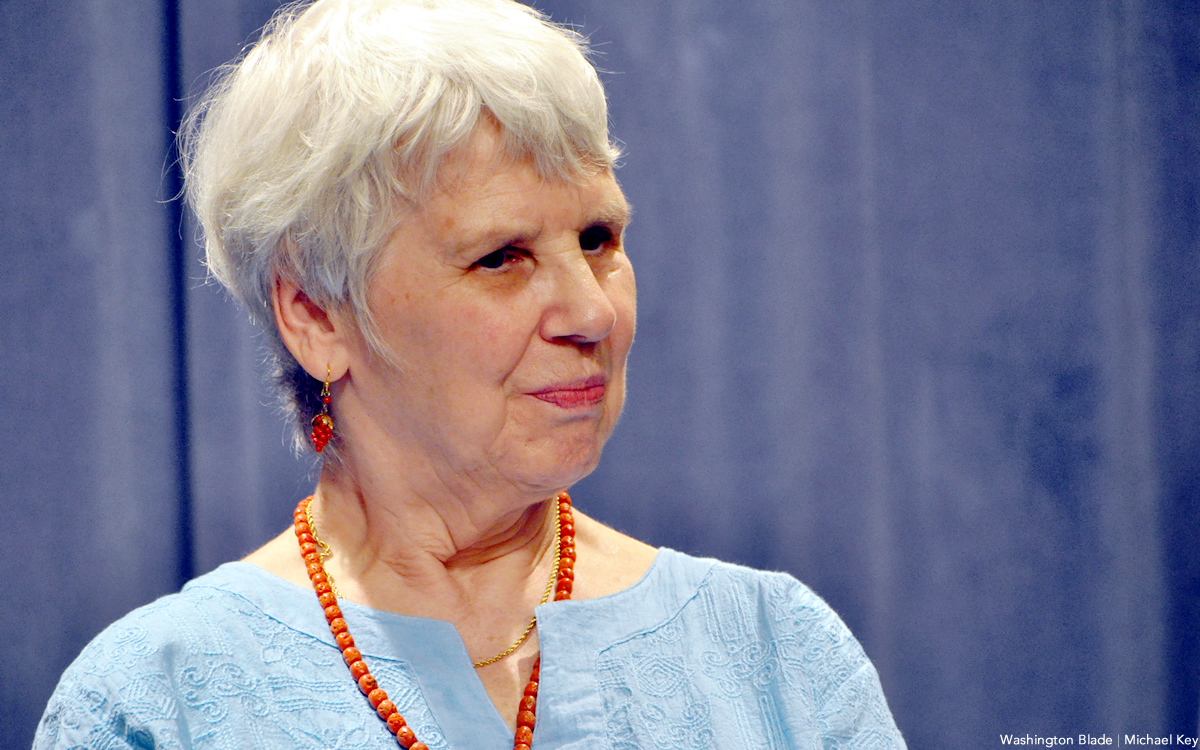
D.C.’s Rainbow History Project announced it will hold a reenactment on Wednesday, April 17, of the historic first protest for gay rights in the form of a picket line in front of the White House that took place on that same day in 1965.
In a statement released last week, Rainbow History Project says the reenactment will mark the 59th anniversary of an event that is credited with bringing attention for the first time to the federal government’s longstanding discrimination against a minority group referred to then as homosexuals or gays and lesbians.
The statement notes that the 1965 event was organized by the Mattachine Society of Washington, D.C., the first politically active LGBT organization in the nation’s capital founded by local gay rights pioneer Frank Kameny.
“The picket took place on the White House sidewalk, Lafayette Park, 1600 Pennsylvania Ave., on April 17, 1965,” the statement says. “For exactly one hour, from 4:20 p.m. to 5:20 p.m., members of the Mattachine Society of Washington walked in a circle, non-stop, in silence, carrying posters of their demands,” the statement continues.
“The White House picket is the origin story for public demonstrations for gay rights in the U.S., and the origin story for Pride Marches and the annual LGBTQ Pride celebrations which occur across the globe,” according to the statement.
It says those picketing in the April 1965 event, which included Kameny and longtime local D.C.-area lesbian activist Lilli Vincenz, both of whom held doctorate degrees, called on the government to adopt the Mattachine Society of Washington’s four major demands: an end to the exclusion of homosexuals from federal government employment; an end to the ban on gays and lesbians from serving in the U.S. military; an end to the “blanket denial” of security clearances for gay people; and an end to the “government refusal to meet with the LGBTQ community.’
Among those who chose not to respond to the request for a meeting was President Lyndon B. Johnson, who occupied the White House at the time of the 1965 picketing.
Vincent Slatt, the Rainbow History Project’s director of archiving and one of the lead organizers of the April 17 reenactment event, said the event is aimed, among other things, at drawing attention to how far the LGBTQ community has come since 1965. He said the event is not in any way a protest of the administration of President Joe Biden and Vice President Kamala Harris, who Slatt called staunch supporters of the LGBTQ community.
“We are just reenacting this historical event and pointing out how far we’ve come,” Slatt told the Washington Blade. “If you think about what it means in 1965 when these people were protesting and LBJ would not even respond to them. And now, we are at a place where Vice President Harris speaks on a stage at Capital Pride.”
The Rainbow History Project statement notes that the reenactment event will also be held in honor of Kameny, who died in 2011, and Vincenz, who passed away in 2023, both of whom participated in a similar reenactment event in 2008.
Among those who will be participating in this week’s reenactment on April 17 will be longtime local LGBTQ rights activist Paul Kuntzler, who is the only known surviving person who was among the White House picketers at the April 1965 event. Kuntzler will be carrying a replica of his own picket sign he held at the 1965 event, the statement says.
It says Rainbow History Project volunteers will also carry replicas of the original protest signs and hand out literature explaining the picket to passersby and tourists.
Similar to the 1965 event, the reenactment picketing at the White House will begin on April 17 at about 4:15 p.m., according to Slatt of the Rainbow History Project.
District of Columbia
Four LGBTQ candidates running for delegate to Democratic National Convention from D.C.
Thirty-two candidates competing for 13 elected delegate positions in April 20 party caucus
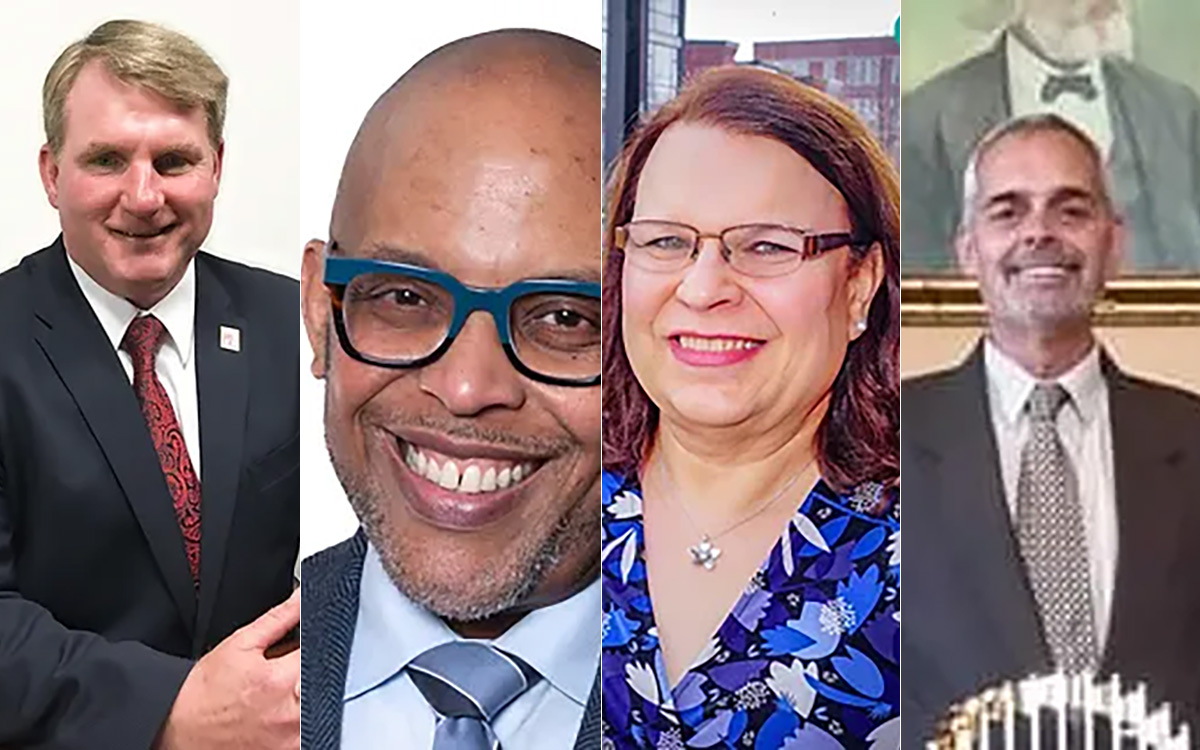
Four LGBTQ Democratic Party activists are running for election as delegates from D.C. to the Democratic National Convention at an April 20 local Democratic Party caucus election in which all D.C. voters who are registered as Democrats will be eligible to vote.
The four LGBTQ candidates are among 32 candidates competing for just 13 elected delegate positions. D.C. will have a total of 51 delegates to the Democratic Convention, but the other 38 include elected officials and party leaders who are considered “automatic” or appointed delegates. The convention will be held in Chicago Aug. 19-23,
Under the delegate selection process put in place by the D.C. Democratic Party, six of the thirteen elected delegate positions will be elected by voters in a section of the city designated as District 1, which includes Wards 1,2, 6, and 8. The other seven elected delegates will be chosen by voters in District 2, which includes Wards 3, 4, 5, and 7.
The LGBTQ candidates include longtime gay Democratic activists David Meadows of Ward 6 and John Fanning of Ward 2 who are running in District 1. Transgender rights advocate and Democratic Party activist Monika Nemeth of Ward 3 and gay Democratic activist Jimmie Williams of Ward 7 are running in District 2.
All four of the LGBTQ candidates have been active members of the Capital Stonewall Democrats, one of D.C.’s largest LGBTQ political organizations. Nemeth and Meadows are past presidents of the organization. Williams has served as chair of the Ward 7 Democratic Committee and is a current member of the committee. Fanning has served as an elected member of the D.C. Democratic State Committee from Ward 2 and served as a delegate to the 2016 Democratic National Convention.
A total of 12 candidates are running in each of the two districts. Under party rules the highest six vote getters in District 1 and the highest 7 vote getters in District 2 will be declared the winners.
The Saturday, April 20 caucus election for the delegate candidates will take place at the Walter E. Washington D.C. Convention Center. An announcement by party officials says two voting sessions will take place, one from 10:00 a.m. to 2:00 p.m. and the other from 4:00 p.m. to 8:00 p.m.
Aside from the elected delegates, two prominent D.C. LGBTQ Democratic leaders will be appointed as delegates to the 2024 Democratic National Convention in their role as members of the Democratic National Committee from D.C.
They are Claire Lucas, a highly acclaimed Democratic Party and LGBTQ rights advocate and party fundraiser; and Earl Fowlkes, one of the lead organizers of D.C.’s annual Black LGBTQ Pride celebration and former president of Capital Stonewall Democrats.
Lucas and Fowlkes and the four LGBTQ candidates running in the April 20 caucus election are committed to backing President Joe Biden as the Democratic nominee for re-election.
Statements from each of the candidates running for delegate in the April 20 caucus election, including the four LGBTQ candidates, can be accessed here: Candidates for Delegate | DC Democratic Party
District of Columbia
HIPS D.C. launches ‘Harm Reduction’ vending machine program
LGBTQ supportive group says program aimed at ‘saving lives’ in response to overdose crisis
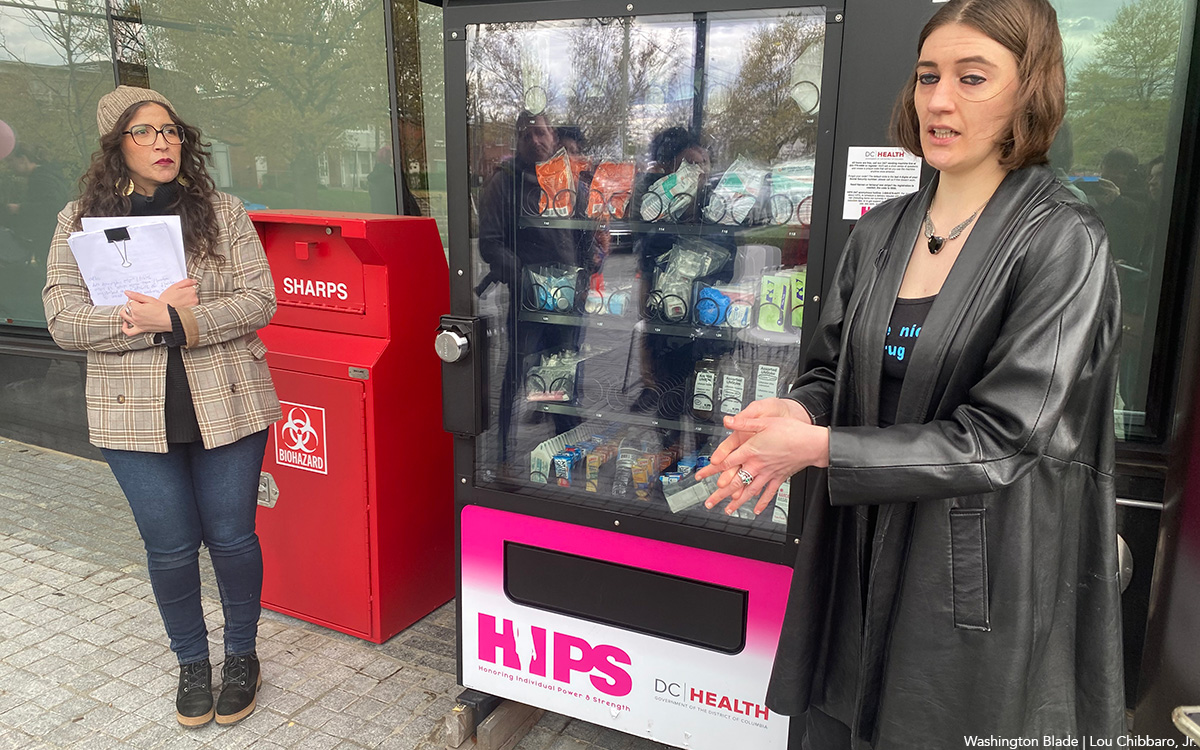
HIPS D.C., the LGBTQ supportive organization that provides support and services for drug users and sex workers, officially launched on April 5 a ‘Harm Reduction Vending Machine Pilot Program’ that it says will help save lives by providing free of charge harm reduction supplies for drug users in locations where there is a “higher than average” rate of overdose cases.
The announcement of the project was held outside the Whitman-Walker Health Max Robinson Center building at 1201 Sycamore Dr., S.E., next to where one of the first three HIPS vending machines is located.
Alexandra Bradley, HIPS’ Outreach and Community Engagement Manager, told a small gathering at the announcement event that among the supplies provided free of charge through the vending machines are naloxone, the life-saving nasal spray medication used to treat an opioid drug overdose; fentanyl test kits, syringes, and syringe wound care kits; drug snort kits, condoms, and other items, including water bottles and snack food such as crackers and granola bars.
Bradley and other officials with HIPS and Whitman-Walker Health said they believe most people, when informed of the rationale behind the vending machines and other programs supporting drug users, will understand that the programs are not encouraging drug use.
“People will use drugs,” Bradley said. “We want them to use them safely,” she added, with the hope that they will seek support to get off drugs. “We can’t help anybody if they are dead. We want to keep people safe,” Bradley said.
A statement released by HIPS says the vending machine pilot program is being funded by a grant from the D.C. Department of Health. It says anyone can access the machines free of charge by contacting HIPS through a phone number posted on the machines – 202-779-0486 – to obtain a four-digit participant code “that they will then punch in to use the machines.” It says that as of April 5, 150 individuals had already registered and enrolled in the program.
Bradley pointed out that registration is not required to obtain naloxone supplies, which can be obtained through a code number posted on the machines. She said each of the three machines are also accompanied by a metal disposal receptacle for safely placing used syringes.
“These machines have been placed in areas where there are higher concentrations of overdose deaths and/or underserved areas with high levels of need for access to services and supplies,” the HIPS statement says.
In addition to the HIPS vending machine at the site of Whitman-Walker’s Max Robinson Center, the second HIPS vending machine is located at The Michelle Obama Southeast Center of Bread for the City at 1700 Marion Barry Avenue, S.E., and the third one is located at Bread for the City’s Shaw neighborhood facility at 1525 7th Street, N.W.
The announcement of the vending machine harm reduction project comes at a time when many in the D.C. LGBTQ community have mourned the loss of beloved local LGBTQ members from a drug overdose, including accidental drug overdoses caused by contamination of their preferred drug such as cocaine with fentanyl.
Also speaking at the announcement event was Andrea Lopez, an Associate Professor at the University of Maryland’s Department of Anthropology, which she said is partnering with HIPS to conduct a study of the vending machine pilot program and its impact as a public health project and the public health benefits of vending machines as an “intervention” in support of those in need.
Others who spoke at the event and provided details of the vending machine project were Cyndee Clay, the HIPS Executive Director; Starr O’Leary, the HIPS Community Outreach Coordinator; and Jona Tanguay, an official with Whitman-Walker Health.
-

 LGBTQ Non-Profit Organizations5 days ago
LGBTQ Non-Profit Organizations5 days agoDay of [no] silence, a call to speak out against anti-LGBTQ+ hate
-

 Africa1 day ago
Africa1 day agoCongolese lawmaker introduces anti-homosexuality bill
-

 Colorado3 days ago
Colorado3 days agoFive transgender, nonbinary ICE detainees allege mistreatment at Colo. detention center
-

 South America5 days ago
South America5 days agoMan convicted of killing Daniel Zamudio in Chile seeks parole



